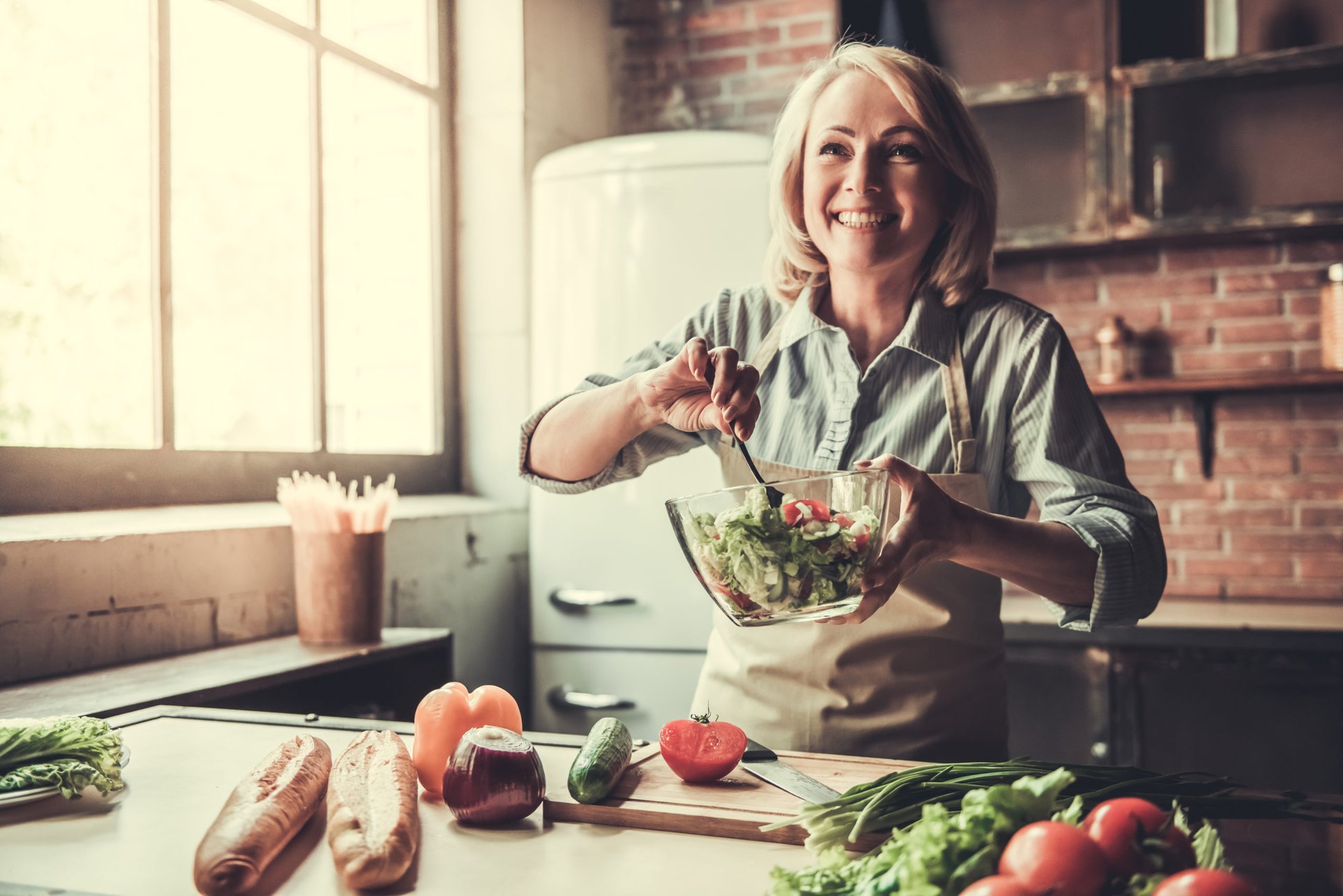
Healthy eating is possible during the coronavirus crisis even when you’re stuck at home and many of your local supermarket’s shelves are bare.
A well-balanced diet including lots of fruits and vegetables and adequate protein and grains helps you bolster your immunity, says professor Diane Rigassio Radler, director for the Institute for Nutrition Interventions at the Rutgers School of Health Professions. Stay hydrated with water, and minimize added sugar and alcohol, she also advises.
Home isolation can drastically reduce activity, so you’ll need far fewer calories than usual, according to Samantha Coogan, director of the Didactic Program in Nutrition and Dietetics at the University of Nevada, Las Vegas. She tells the UNLV News Center:
“Incorporating healthy foods into your diet during a quarantine scenario is probably more important than at any other time.”
Shoppers are most likely to notice empty shelves or purchase limits when seeking fresh ground beef, fresh turkey and chicken parts, eggs, bulk rice and rice mixes, water and breads, according to grocers such as ShopRite and H-E-B. That’s what I’ve seen in my own recent forays into supermarkets and my unfilled online grocery orders.
And yet, despite limited or erratic supplies at the stores, you should still be able to meet the USDA MyPlate guide recommendations for healthy eating, Coogan says. Those include filling a quarter of your plate with a protein source (even if it is a plant-based one like quinoa), a quarter with whole grains and the rest with vegetables and a little fruit (fresh, frozen or canned).
Rigassio Radler, Coogan and others have the following tips for healthy eating while coping with the coronavirus.
Good foods to shop for
Having plenty of food on hand will reduce the number of times you need to go out to shop, Rigassio Radler says.
She advises stocking up on canned, frozen and dried non-perishable foods. At the same time, she cautions against hoarding.
When they are frozen, liquid-egg products, meat, seafood, non-processed fruit and vegetables will last for months, she says.
Canned foods are shelf-stable for years although they generally have more salt, so rinse canned foods to remove excess sugar and sodium, Coogan says. When you can, choose fruit canned in water rather than syrup.
Nuts, nut butters, seeds and legumes are shelf-stable if stored properly. They provide protein, unsaturated fats and some electrolytes, Coogan says.
“You can easily add these to oatmeal, salads, other grain dishes like rice, amaranth or quinoa, or even smoothies,” she says.
To avoid waste and reduce shopping trips, use your fresh, delicate, perishable produce first, says Carrie Dennett, a registered dietitian nutritionist who writes for The Seattle Times.
She includes leafy greens, peppers, broccoli, berries and stone fruits in that group. Next use longer-lasting produce, such as cauliflower, cabbage, carrots, apples and citrus. Finally, dip into your stash of canned and frozen produce.
Tip: Here are 10 foods that can keep for years.
Use your freezer
The last thing you want is for your food to go to waste, Coogan says.
Freeze perishable food. “If you buy a gallon of milk but only use a half gallon per week, freeze half so it does not spoil before you can use it,” Rigassio Radler tells Money Talks News. You can also freeze breads, buns and rolls, she says.
Try freezing meat, poultry or dairy right away and thaw it as you need it.
“Frozen fruit and vegetables are close to fresh varieties because they are required to be blanched or ‘shocked’ in boiling water for at least two minutes prior to freezing in order to preserve as many nutrients as possible,” Coogan says.
She recommends batch-making recipes and freezing them. “Plus, you’ve done most of the work up front and can reheat meals as the week progresses,” she says.
You can even freeze hardboiled eggs — if you can find eggs to buy.
Tip: Here are “7 Tips for Sane Shopping When Everyone Else Is Panic Buying.”
Plan for substitutions
Think ahead about acceptable substitutions, Rigassio Radler advises.
If you’re planning to make white rice and red beans, but they are not available, you can substitute other grains, such as farro or barley, and a different bean, she says. If you can’t find canned beans, use dry beans.
“Plan that meal for a day later in the week since dry beans take longer to cook,” she says.
For eggs, Coogan suggests alternatives such as Egg Beaters or other liquid and powdered eggs.
Pay attention to items your grocer is short on, Rigassio Radler says. ShopRite, for example, lists food and other items subject to purchase limits at its Atlantic supermarkets and sends updates on product availability through social media and text alerts.
Handle groceries safely
Wash your hands as soon as you get home from the store or when you bring an online order in from your porch.
As you unpack your bags, wipe down packaged foods with an alcohol-based towel or commercial antimicrobial wipe, Rigassio Radler says.
Wash or wipe your reusable bags too. (Some stores have banned reusable bags.)
Wash all produce. Make sure there’s good airflow between your food items. Avoid overcrowding any part of your refrigerator or freezer since food could warm up and sit at unsafe temperatures, Coogan cautions.
Share your best tips for healthy eating during the coronavirus crisis in a comment below or at our Facebook page.





Add a Comment
Our Policy: We welcome relevant and respectful comments in order to foster healthy and informative discussions. All other comments may be removed. Comments with links are automatically held for moderation.